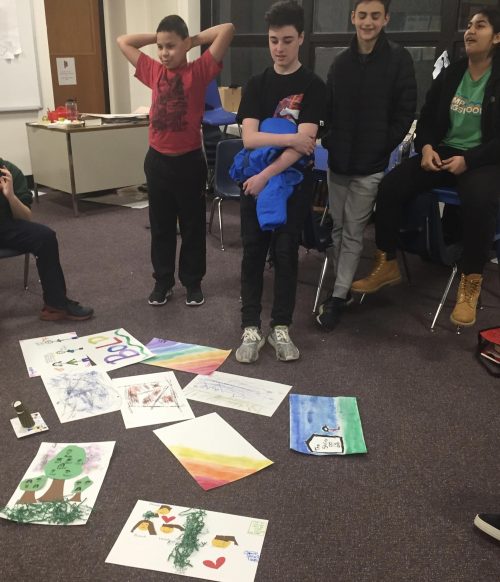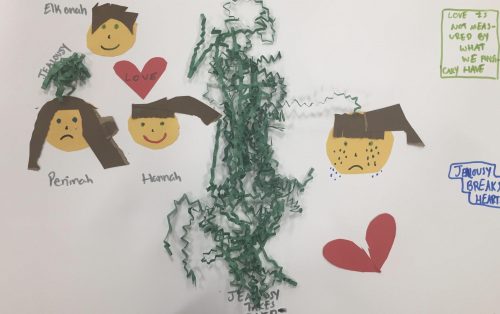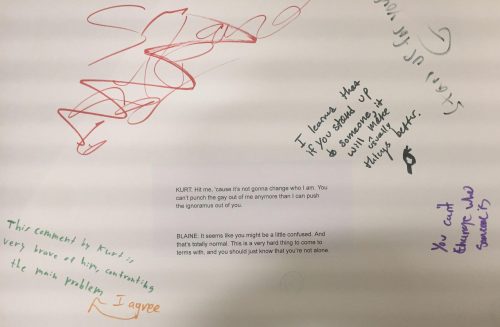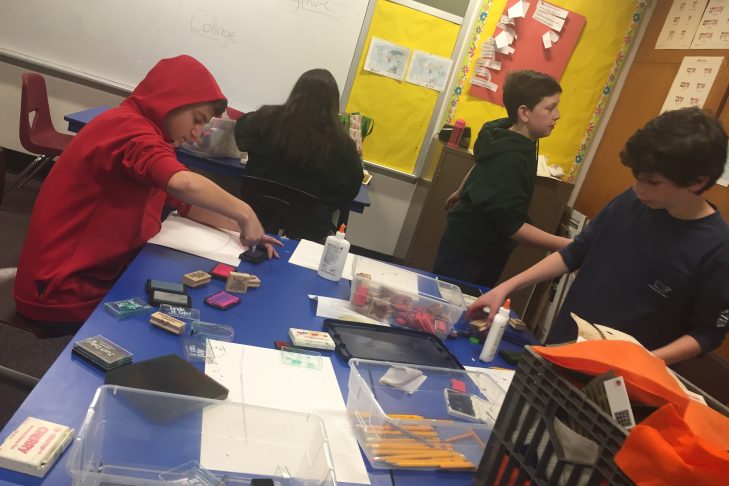Subbing a class of eighth-graders is hard enough. Subbing a class of eighth-graders the evening after “Stranger Things” Season 2 debuted on Netflix provided an added challenge I had not anticipated. How could I get this class to feel comfortable with me, respect me—their teacher for one evening—while their stress levels vacillated between theorizing Will Byer’s fate from the Demogorgon, fearing their classmates would spill spoilers and contemplating their homework pile against a Netflix all-night binge. Suffice it to say, class did not go well.
Recovering from a class of distracted students and unachieved objectives, I became anxious for the following semester and the course I had committed to teach. I teach in The Tent, a Jewish learning community for Greater Boston teens at Temple Israel of Boston. The Tent brings upwards of 100 Jewish teenagers together on Monday evenings and offers a variety of Jewish learning opportunities. Taking into account competing after-school activities, homework, social lives and interests, how do we get Jewish teenagers to remain engaged and active Jewish learners? My next step seemed clear: If I could not compete with “Stranger Things,” I would need to bring “Stranger Things” to my Torah class. Thus, a new Tent course, “Tentflix,” was born.
For generations, Jews have studied the Torah and created midrashim (interpretative writings)—discovering new meanings within the text that respond to a changing world. What can today’s Netflix generation bring to the study of Torah? How can popular Netflix shows be used as a tool to ask questions and think critically about our Torah stories, making connections between the historic text and issues impacting teens today? Drawing on existing resources from Keshet and Jewish Women’s Archive, our “Tentflix” class has watched “Glee” and examined Jewish perspectives on sexuality, we’ve considered “The Unbreakable Kimmy Schmidt” together with the story of Tamar to discuss taking ownership of our lives, and, of course, “Stranger Things” to rethink the story of Eve and the idea of support.
This class is currently underway, trust and relationships are progressively being built, and I am still learning how to listen and make Judaism relevant for teenagers today. Feminism, sexuality, dating and mental health are just some areas where teens use media to help them navigate their daily lives. As a teacher, I am just as caught up in TV as both escapism and a tool to talk about issues I care about. Why compete with this cultural phenomenon when instead we can bring it to our classrooms?



Originating from Cape Town, South Africa, Tali Puterman now lives in Boston and works as the social justice educator and community organizer at Temple Israel of Boston. Tali received her master’s degree in educational studies from Tufts University and her bachelor’s degree from Brandeis University. Reacting to her own experiences of miseducation growing up white in post-apartheid South Africa attending an Orthodox Jewish day school, Tali challenges students to question and confront injustices and see themselves as Jewish leaders of change. Tali was the 2017 Twersky Award Winner, an award given by the Jewish Women’s Archive to honor and celebrate educators who integrate Jewish women’s stories into their teaching.
This post has been contributed by a third party. The opinions, facts and any media content are presented solely by the author, and JewishBoston assumes no responsibility for them. Want to add your voice to the conversation? Publish your own post here. MORE


